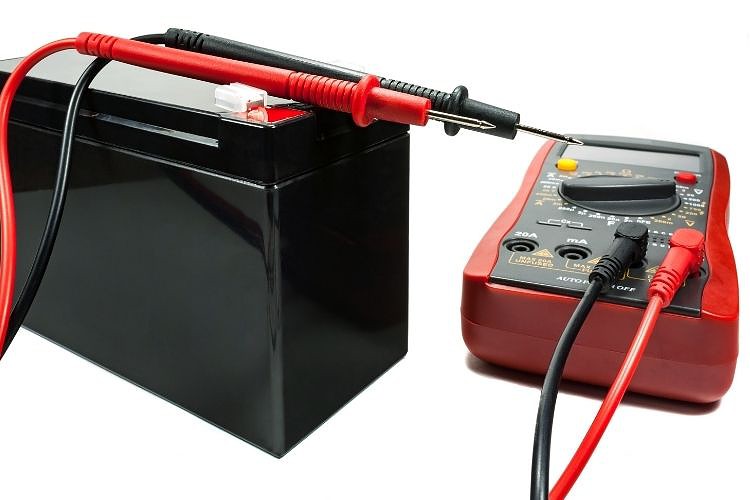If you have any electronics on your boat, then chances are marine batteries are an important part of your setup.
But despite their ability to start your boat engine or provide hours of power to your devices, marine batteries are not invulnerable. As their charge is used up, their voltage tends to drop. And if it drops too low, the battery could be damaged or destroyed.
So, how low can a marine battery go? What is the appropriate voltage for your battery?
Great questions! Let’s explore the answers, shall we?
Table of Contents
How Low Can a Marine Battery Go?
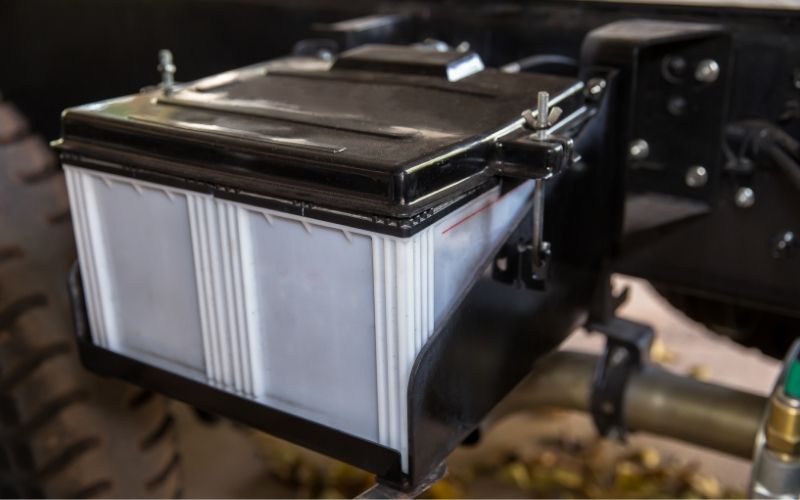
If you have a marine battery, you probably know that discharging it too far can harm the battery and shorten its lifespan. But you may be wondering: just how deep can you discharge the battery? How low can the voltage be before you have to worry about causing damage?
Unfortunately, there’s no short answer. It depends on the battery and can vary widely.
For example, deep cycle batteries are designed to be discharged more deeply than other kinds of marine batteries, such as starting batteries. Different deep cycle batteries are designed to operate under different minimum and maximum voltages.
An added complication is that you can’t measure your battery’s voltage while using it; you have to measure it later, after giving the battery time to rest. If you are concerned that your voltage is too low, check it using a voltmeter or multimeter before using the battery.
What Voltage is Too Low for a Marine Battery?
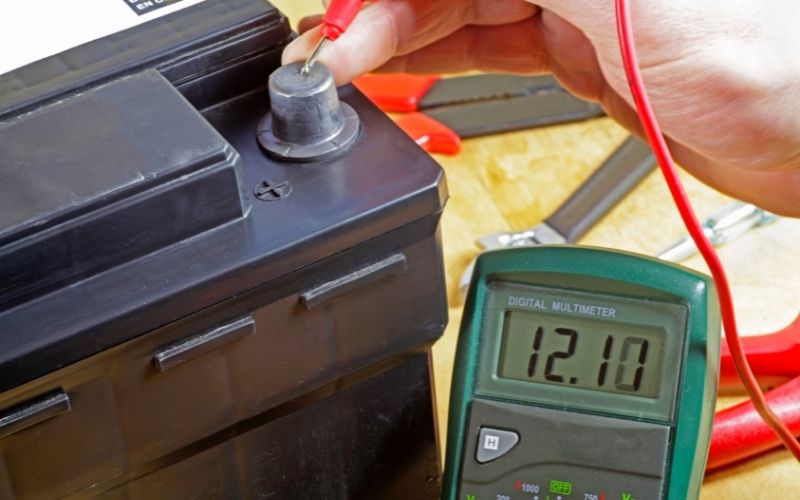
Under no circumstances do you want to use your battery at a lower than minimum operating voltage–otherwise, as noted above, you may cause damage to the battery. The proper operating voltage varies from battery to battery and depends on several factors, including:
- Classification: As mentioned, deep cycle batteries can generally operate at a wider range of voltages than other types of batteries.
On the other hand, starting batteries require a higher voltage to produce the burst of power to start an engine then must be continually recharged by the alternator. - Type: There are different types of batteries: flooded lead-acid, sealed lead-acid (AGM and gel), and lithium. Lithium batteries can generally operate at a lower voltage than the other types of batteries, though it will also depend on the quality of the battery.
For example, a cheap, low-quality lithium battery may not maintain a functional voltage, and it may be considered dead at a higher voltage than a high-quality lithium battery.
What’s more, a good-quality lead-acid battery may perform better than a cheap lithium battery and may even be designed to operate at a lower voltage. - Temperature: The ambient temperature can affect a battery both while it is charging and discharging, which can lead to fluctuations in the battery’s voltage.
For example, if the battery is in direct sunlight on a hot day or receiving an extra amount of heat from a running engine, it will tend to discharge faster, causing the voltage to drop more quickly. It’s important to be aware of this, especially throughout the summer.
Generally speaking, a 12V battery of any type or quality shouldn’t be used at lower than 12 to 12.5 volts. Most often, the voltage should be much higher–for deep cycle batteries; resting voltage can easily go up to 14.2 or higher.
Refer to this article for a more in-depth explanation.
But when it comes to your battery, you shouldn’t rely on generalizations. It’s always best to follow the guidelines for your specific battery, which can be found in your owner’s manual. Again, every battery is designed differently.
What is the Minimum Voltage for a Marine Battery?
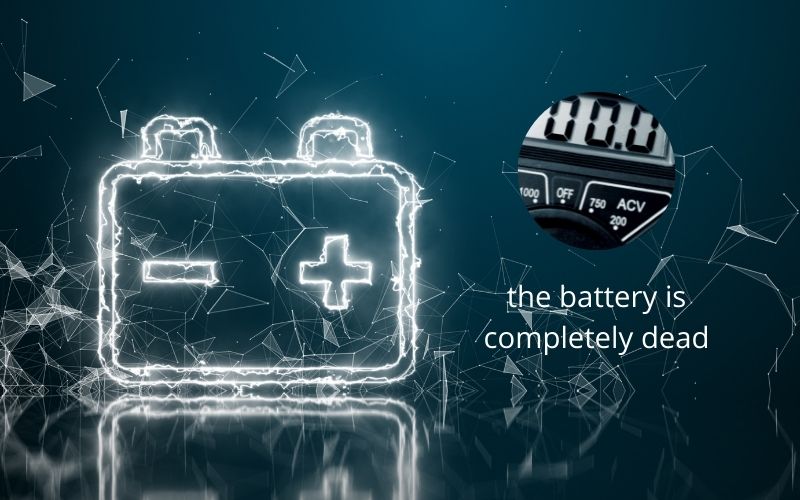
Regardless of battery type, classification, quality, and other factors, the minimum voltage a battery can be is completely dead–zero volts. That said, most batteries will appear dead long before they reach zero voltage.
If your battery is showing zero volts, there may be little you can do to bring it back. Some types of marine battery chargers are able to successfully charge batteries that have gone this low, but it rarely happens. Usually, the battery is completely dead by this point.
Again though, batteries are usually considered dead long before they drop to zero volts.
Lead -acid batteries are typically considered dead at around 10.7 volts. Lithium batteries can go a little lower, but are usually considered dead at around 9.4 volts.
How Many Volts Should a Normal Marine Battery Have?
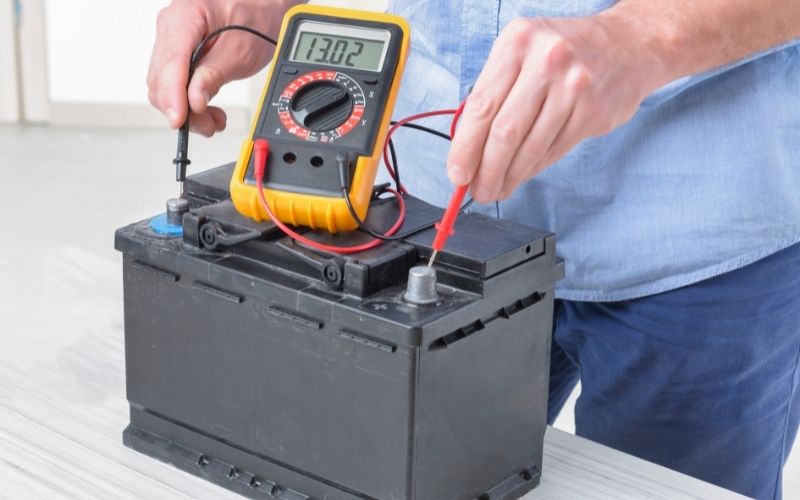
Again, this will depend on your specific battery.
Marine batteries typically come in four voltage options: 12V, 24V, 36V, and 48V. Most marine batteries are 12V and 24V. But this voltage classification doesn’t tell the whole story. Regardless of its classification, it will likely have a slightly different voltage when fully charged.
For example, a 12V battery may have a resting voltage of 12.8 when fully charged, or it may be much higher–13.2 up to 14.2. A 24V battery may have a resting voltage of 25.2, or higher–26.4 or more.
Again, exact voltages vary from battery to battery. Not all 12V batteries are supposed to have a resting voltage of 12.8, and even those that are may have a higher voltage when fully charged and a lower voltage when in use.
Again, pay attention to the owner’s manual for your specific battery to know the appropriate voltage. If the owner’s manual is unavailable, you may be able to find it online by searching for your battery’s manufacturer and model number.
Conclusion
Marine batteries have different minimum operating voltages depending on the battery’s type, classification, and quality. Even the ambient temperature can affect a battery’s voltage.
Once a battery has reached zero volts, it is considered completely dead, though batteries will usually die long before reaching this minimum voltage. 12V batteries that are fully charged often have a much higher resting voltage and shouldn’t be operated at a voltage lower than 12 volts.

I created this site to help people – to help you – with your boat problems. Instead of helping one person at a time, I want this website to be the “one-stop-shop” for everyone’s boating concerns. Read more.

